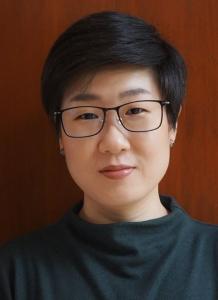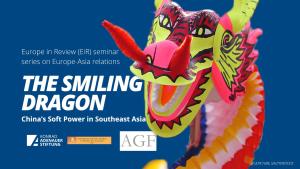Discussion
Details
Soft power – a country’s power derived from the ability to attract or to influence a certain perception of oneself – is a political currency which is available to all kinds of states, including small and middle powers. Nevertheless, evidently, it is the soft power of the great powers that counts most in the international system.
With a globally tightening system-competition between ‘the West’ and China and its major partner Russia, global and regional orders increasingly shifting and a creeping disentanglement of crucial elements within the web of globalization taking speed, the soft power of the great international players becomes an even more fascinating and important topic.
In Southeast Asia, the probably most obvious soft power in terms of geography and history is the Chinese. Based on century-old cultural influences, large Chinese migrant societies, and a mighty economic impact on the region, China enjoys notable soft power resources to tab in that are, however, competing with the soft power potentials America and Europe but also Japan and, although to a much lesser degree, India enjoy.
In recent years, the Chinese Communist Party (CCP) has increasingly enhanced its efforts to increase Chinese soft power to advance China’s political, economic, and security objectives both on a global and regional level. While it could be argued that “soft power” has always been part and parcel of China’s self-understanding as the “Middle Kingdom” – the civilizational center of the world –, it has markedly increased its soft power policies under President Xi Jinping’s rule with China having embarked on a massive program and push to project the country’s soft power to the outside world.
The instruments of China’s soft power as an operational foreign policy tool that have flourished over the past decade to shape perceptions and narratives include the Confucius institutes, people-to-people engagements with tourism enjoying the economically greatest impact, concerted media campaigns, high-level public diplomacy, and various forms of engagement with regional and global governance regimes and organizations. While the Belt and Road initiative is mainly a matter of Chinese economic hard power it also displays dimensions of soft power policy, especially where it is reinforced by the Global Development Initiative (GDI), China’s latest soft power projection that is aimed at presenting itself as advocating for multipolar global governance, in which smaller, developing countries gain a stronger voice. Although the GDI is still rather an aspiration to global commitments to the Sustainable Development Goals (SDGs) than a blueprint – it still lacks a timeline for delivery, overall financial schemes, clarity on priority countries or regions, or even sectoral themes – more than 100 countries have already expressed support for the initiative since its official launch in September last year, which itself already is a manifestation of Chinese soft power.
Against this backdrop, the German-Southeast Asian Center of Excellence for Public Policy and Good Governance at the Faculty of Law at Thammasat University (CPG), the Asian Governance Foundation (AGF), and the Thailand Office of the Konrad Adenauer Foundation (KAS) are hosting a seminar on China’s soft power in Southeast Asia to introduce and discuss a recent study of KAS Thailand on the topic. A thorough introduction of the KAS soft power study will serve as a basis for a panel expert discussion on China’s soft power projections, their underlying strategic intentions, their prospects, and the responses of various regionally relevant actors. The panel discussion will be followed by an open forum to jointly discuss the issue among the audience with special regards of the impact and outlook for Thailand.
Agenda
1:30-2:00 pm: Registration
2:00-2:15 pm: Welcoming words & Introductory remarks
Henning Glaser, Director, German-Southeast Asian Center of Excellence for Public Policy and Good Governance (CPG), Faculty of Law, Thammasat University
Dr. Céline-Agathe Caro, Director, Office of the Konrad Adenauer Foundation (KAS) in Thailand
2:15-4:15 pm: Presentation of the study “The Smiling Dragon – China’s Soft Power in Southeast Asia: Implications for Germany and the EU” & panel discussion
Panelists:
Dr. Céline-Agathe Caro, Konrad Adenauer Foundation (KAS), Thailand Office
Prof. Dr. Kitti Prasirtsuk, Faculty of Political Science, Thammasat University
Assist. Prof. Dr. Kornphanat Tungkeunkunt, Faculty of Liberal Arts, Thammasat University
Assist. Prof. Dr. Peera Charoenvattananukul, Faculty of Political Science, Thammasat University
Moderator:
Dr. Duc Quang Ly, Project Manager, German-Southeast Asian Center of Excellence for Public Policy and Good Governance (CPG), Faculty of Law, Thammasat University




